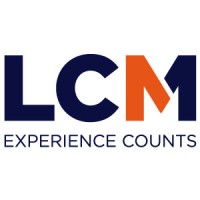The JurisTrade Platform soft-launched last week with over $70 million in litigation funding opportunities in single cases, funding mass tort dockets and law firm refinancing.
The JurisTrade Litigation Asset Marketplace (“JurisTrade’) provides a transparent electronic platform which facilitates both primary funding opportunities in litigation finance, as well secondary sales of such interests.
The potential market for litigation finance ranges in the several $100s billions, of which only $30 billion is currently funded. JurisTrade is designed to unlock this large unmet demand through its liquid and transparent marketplace.
The litigation finance ecosystem has been clamoring for years for this type of market solution. Similarly to many other major asset classes, JurisTrade was built on a foundation of industry standardization, transparency and process streamlining, which eliminates uncertainty and, thus, attracts liquidity for litigation finance, a bona fide uncorrelated asset class.
Clients of JurisTrade include institutions, law firms, litigation finance funds, and family offices.
JurisTrade’s Phase I rollout includes nine diverse investment opportunities including a high-profile single case, a judgment monetization case, a law firm debt refinancing case, and several mass action-related cases. An OTC service desk is being offered to assist our clients in negotiating terms and structuring all manners of trades and vehicles, among other things. Other market features, technology, and analytics will be offered soon.
Typhon Capital Management, Larry Hite, and two notable family offices are sponsors of JurisTrade, and JurisTrade will be leveraging their collective expertise and experience. Typhon, in particular, provides trading operations on JurisTrade. Clients can use JurisTrade to directly engage in claims trading, such as bankruptcy and mass tort, then leverage Typhon to invest in or create custom passive funds holding any manner of litigation interests or loans, and actively managed funds, such as thematic claim trading, market making, or activist litigations. Typhon can also structure insurance wrappers around litigation-focused investments.
The senior management team of JurisTrade includes James Koutoulas as CEO, Kevin J.P. O’Hara as Chairman, Shawn Hartpence as Chief Commercial Officer, and Andrew Barroway and Larry Hite as strategic limited partners.
“Mr. Koutoulas is a seasoned hedge fund manager and attorney with a unique skillset encompassing derivatives-trading, complex bankruptcy and class action litigation, and software development making him the perfect CEO to bring the emerging asset class of litigation assets to a wider audience. He and I share similar philosophies on structuring vehicles with asymmetric, positively-skewed, and uncorrelated return profiles which will be much appreciated in the litigation investing world,” said Larry Hite, Founder of Hite Capital.
“Similarly, Mr. O’Hara’s previous C-suite roles at NYSE, CBOT, Archipelago and Gulf Finance House, and as an attorney at the SEC and his financial markets development in Eastern Europe, provide JurisTrade with one of the most accomplished exchange experts to steer our growth.”
“Larry Hite is a pioneer of two assets classes – commodity trading and litigation assets. Larry is an original ‘Market Wizard’ and we are humbled to have him as a founding partner and advisor to JurisTrade,” said James Koutoulas, CEO of JurisTrade.
Please sign up to view our initial inventory and be kept up to date at www.juristrade.com.
About Larry Hite:
Larry Hite is a legendary commodities trader and one of the founders of systematic trading. Mr. Hite founded Mint Capital, which was the largest CTA in the world by AUM in 1990. He has since been an active investor in litigation assets where he has invested in thousands of cases.
About Typhon Capital Management:
Typhon Capital Management, led by CEO James Koutoulas, is a multi-strategy hedge fund and platform specializing in tactical futures, quantitative, and cryptocurrency trading. Typhon creates custom portfolios and structured products for institutional investors and wealth management firms and is headquartered in Miami Beach. Mr. Koutoulas also was lead customer counsel in the MF Global bankruptcy, leading the recovery of all $6.7 billion in customer assets.
About Kevin J.P. O’Hara:
Kevin J. P. O’Hara has a decades-long career in business, law and regulation, entrepreneurship, technology, international, investing, and post-graduate teaching. Mr. O’Hara is an active angel investor with several successful exits, including sales to LinkedIn, PayPal, and IQVIA. He has a plethora of private and public company board and governance experience.
He was previously: (1) a C-suite member at CBOT, NYSE, Archipelago, and Gulf Finance House (Bahrain); (2) an attorney at the SEC, DOJ, and a major Chicago law firm (products liability and mass tort defense)(3) a law and business school lecturer at Northwestern University and Loyola University; and (4) an in-county financial and economic advisor in Eastern Europe in 1990s.
About Shawn Hartpence:
Shawn Hartpence has over a decade of experience advising law firms, litigation fund managers and institutional investors on capital formation and litigation investment. Areas of expertise include mass tort portfolio funding, secondary mass tort portfolio trading, single-case funding, portfolio funding, single-case monetization, and capital introduction for niche litigation strategies. Mr. Hartpence is a partner at Ocasio Mass Tort Law, a DC Law Firm and a Board Member of a cutting-edge AI Litigation assessment company.
About Andrew Barroway:
Andrew Barroway is a distinguished litigator and hedge fund manager with a proven track record of success in the investment world. He previously built Barroway, Topaz, Kessler, Meltzer, & Check, LLP, the second largest securities class action firm in the country, and helped lead the $3.2 billion settlement of Tyco Ltd. International. At Merion Investment Management, Mr. Barroway invented the appraisal rights arbitrage trade where he managed $1.2B in the near-riskless strategy, annualizing 13.25% net for 12 years. Mr. Barroway is a strategic limited partner in JurisTrade and the senior portfolio manager of our upcoming Cerus Litigation Fund.
















